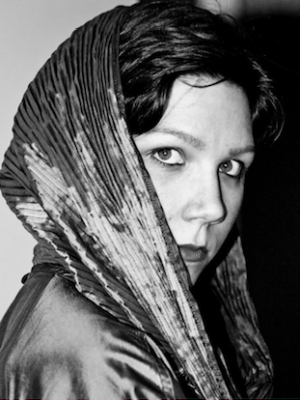The Beatified Among the Insane
Soy ese ave carnívora
que evitas en curvas comunes
aunque reclames mi presencia de coral maníaco
sigues temiendo una desaparición
donde ponga toda mi destreza de cortina de terciopelo negro
y un público vidente tenga que aplaudir
el horror de tus ojos desechos
ya te bauticé.
Those withered landscapes need nothing
more than two bodies rolling around on the pavement
and a solitary street vendor observing everything
with ancient curiosity
your throat is dark when it moans freely
love is not in union with man
[maybe with woman]
we left the same place
we became accustomed to the same pain measured and political
you’ve dressed women with red pants
you’ve searched for goddesses in their hunting grounds
you’ve penetrated the misery of convict steel
How much does that country of yours cost, from which you never stop returning?
Estos paisajes marchitos no necesitan
más que dos cuerpos revolcándose sobre el pavimento
y un solitario vendedor observando todo con
curiosidad antigua
tu garganta es oscura cuando gime largamente
el amor no está a la medida del hombre
[quizás de la mujer]
nos fuimos del mismo lugar
nos acostumbramos al mismo dolor mesurado y político
has vestido a mujeres con pantalones rojos
has buscado a las diosas en sus bosques de caza
has penetrado la miseria de las rejas convictas
¿cuánto cuesta ese país tuyo, del que no dejas de regresar?
The end of the world perches on your shoulder
I can sense its eerie smell
like dusk unhinged
I shake it with an immense heat
that comes from the south.
El fin del mundo se posa en tu hombro
puedo presentir su extraño olor
de atardecer descolgado
lo sacudo con un calor inmenso
que viene del sur.
Perhaps a circus exists that doesn’t embrace the lonely
the monsters reproduce among themselves
they copy each other
with a narcissism that permeates everything
they recite in one another’s ear
the same obstinate music of entrapment
the wound
a chord that clamps intolerant
and lifts the bodies
a caress of knots at the high day hours
absolute moment for delirium.
Acaso existe algún circo que no abrace a las solitarias
los monstruos se recrean entre sí
se copian
con un narcisismo que todo lo permea
se recitan al oído
la misma música obstinada del encierro
la herida
una cuerda que aprieta intolerante
y levanta los cuerpos
una caricia de nudos a altas horas del día
pleno momento para el delirio.
You had taught me that time can break itself
become an intuitive dough
that only fits inside pockets
do you realize that we are born of a premonition?
Me habías enseñado que el tiempo puede quebrarse
volverse una masa intuitiva que solo
cabe en los bolsillos
¿te das cuenta que nacemos de una premonición?
Fingers weave the white net
from the inside out
the flesh just served
fresh from an animal that refuses death
its surrender is silent
unaware how to howl in any language
the flies suck that inflamed cornea
involuntarily the itch circulates, how much devotion,
what can I offer
perhaps the teeth not yet born
a threat that scars
my departure.
Los dedos tejen la red blanca
de adentro hacia fuera
la carne recién servida
fresca de animal que aún no muere
su entrega es muda
no sabe aullar en ninguna lengua
las moscas chupan esa córnea inflamada
sin voluntad la pulsión circula, cuánta devoción,
qué puedo ofrecer
quizás los dientes que no han nacido
una amenaza que cicatrice
mi partida.
Like all animals
we have to pay with our lives
the stinginess of cadavers
this extreme religion
so similar to the jealousy of horses
it’s what relishes in my womb
and grieves, because it has changed until the day I bleed.
Como todos los animales
tenemos que pagar con nuestras vidas
la mezquindad de los cadáveres
esta religión extrema
tan parecida a los celos de los caballos
es lo que goza en mi vientre
y duele, porque ha cambiado hasta el día que sangro.
I’m unable to dissolve the threat of sinking
in order to tear out
this torrent of salt, one origin,
perhaps an impulse against death, yes, from the song
that courts the fervor of the bones,
that web of long mileage.
No consigo disolver la amenaza
de hundirme para arrancar este torrente
de sal, un origen,
acaso un impulso en contra de la muerte, sí, del canto
que corteja el ardor de los huesos,
esa red de alto kilometraje.
Unbearable to grow
without having found you in the land
where the dagger repeats itself
and warns of a common ardor.
Insoportable crecer sin
haberte encontrado en tierras
donde el puñal se repite
y advierte un ardor común.
This is how we are when we don’t return:
everything multiplies in a place no one knows
we stop deserving the excesses
something whistles
between the offerings of an obscure devotion.
Who said that we’re born alone,
born of no one.
Así somos cuando no volvemos:
todo se multiplica en un lugar que nadie conoce
dejamos de merecer los excesos
algo silba
entre las ofrendas de una extraña devoción.
Quien dijo que nacemos solos,
nació de nadie.
I beg you take me again
where I know how to name what I touch
and everything is a bird with tense wings that waits
so as not to frighten you
this is how miserable glory tastes
like contradiction and fruit and wound
we cut off the fire before beginning
and arrive to that forest, patient,
where the doves and snakes devour one another
to save ourselves
in this life.
Te ruego me lleves de vuelta
donde sé nombrar lo que toco
y todo es un pájaro de alas tensas que espera
para no asustarte
así sabe la miserable gloria
a contradicción y fruta y herida
suspendemos el fervor sin inicio
y llegamos a ese bosque, pacientes,
donde las palomas y serpientes se devoran entre sí
para salvarnos
en esta vida.
Translator’s Statement
Raquel Abend van Dalen’s, La beata de las locas, was originally published in Spain by Entropía Ediciones in 2019. It is a blend of potent litany and apostrophe, inspired by religious mysticism, femicide, immigration, love affair, dictatorial regimes, ritual, and outrage. It’s important to note that the work is a piece of heteroglossia, and that the speakers are always women, regardless of which voices are enunciating.
These symphonic poems emphasize sound and linguistic pungency over linear narrative. They subtly shift from a collective to a singular voice, to an intimate second person, then to an unknown lover who moves from being gruesome at times to serious and playful at others.
This collaborative translation, The Beatified Among The Insane, required us to work both dynamically and kinesthetically together. We met regularly at a maze outside of a church in Houston, Texas. It was during these monastic moments—barefoot and hearing church bells keeping time in the background—we realized the mystery of translation and how it required a meditative state. There, we read translations and originals aloud as we walked the labyrinth and shared our joint languages to bring this book to life in English with a similar piercing, visceral sensitivity we believe the poems have in Spanish. From late afternoon to twilight and into the dark of night, we read from the light of the church or our cell phones. The process was not only a dialogue exploring our own love and appreciation of one another’s mother tongue, and a quest for innovative language, but also an inquiry into mysticism and its effects on the practice of translation.
Raquel Abend van Dalen is a poet and writer from Caracas, Venezuela. Her work spans a variety of genres including hybrid forms. In 2014, she received a MFA in Creative Writing in Spanish from New York University. In 2016, she was a resident writer in the program for artists at the Camac Centre d’Art in France. She is currently pursuing a Ph.D. in Creative Writing in Spanish and Art History at the University of Houston.
Dillon Scalzo is a poet and translator with a passion for working back and forth between the mediums of Spanish and English. He spent thirteen years based in the U.S./Mexico border in San Diego, CA/Tijuana y Tecate, Baja California. He has also worked in other parts of México and Spain. In 2016, he completed a U.S. Fulbright grant to teach creative writing in Uruguay and pursue his work in translation. His work centers on the movement of poetry and art across physical and imaginary borderlands. Dillon currently teaches creative writing for WITS Houston, ESL for adults at AEC Texas, and is a translator and museum educator at Contemporary Arts Museum Houston.







